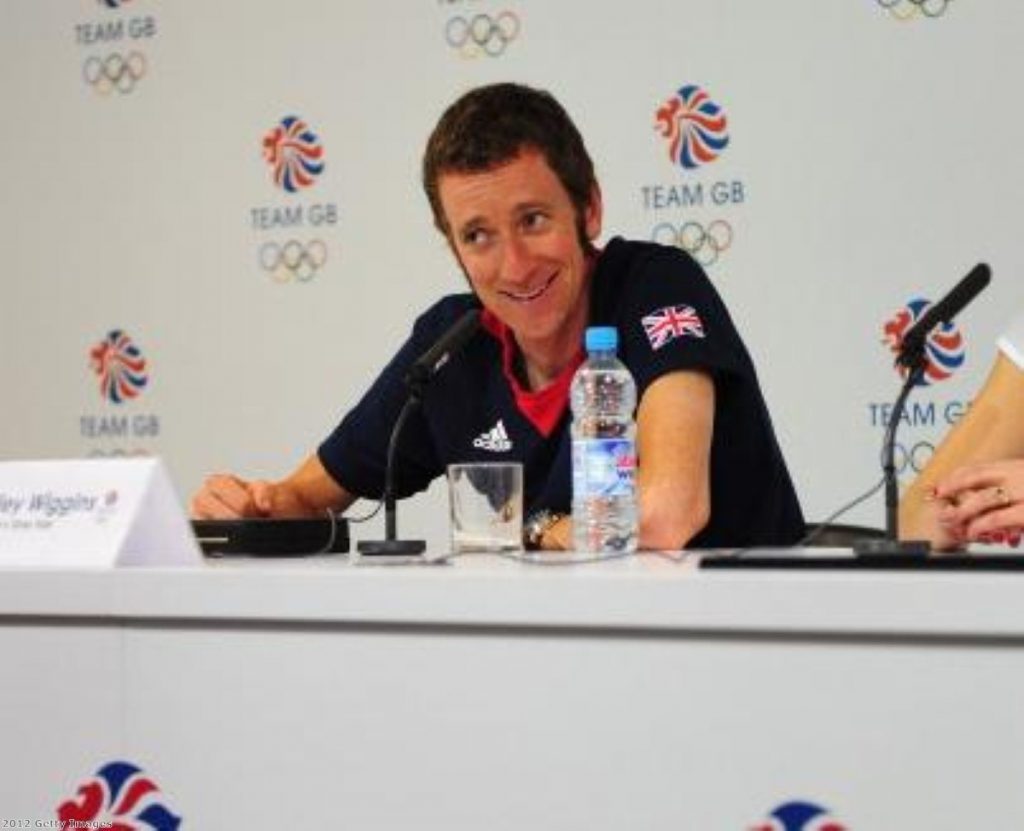Govt rejects Wiggins’ cycle helmet call
Olympic hero Bradley Wiggins found himself in the firing line after swapping his saddle for a soapbox yesterday evening.
Britain's first Tour de France winner, who won the UK's second gold of London 2012 yesterday, attracted criticism after the death of a cyclist near the Olympic velodrome prompted him to call for tightened road safety laws.
His demands for cycle helmets to become compulsory were quickly rejected by the government, which said wearing them should be a matter of "individual choice".
It is not clear whether the 28-year-old man, pronounced dead on the scene after being hit by an Olympic bus carrying foreign media, had a helmet on when the accident occurred. But Wiggins used a press conference to call for the government to legislate to make all those on two wheels wear one.


"Ultimately, if you get knocked off and you don't have a helmet on, then you can't argue. You can get killed if you don’t have a helmet on," Wiggins said.
"You shouldn't be riding along with iPods and phones and things on. You have lights on. Once there are laws passed for cyclists then you are protected and you can say, 'well, I have done everything to be safe'.
"There are a lot of things that need to be addressed with cycling at the moment on the roads. Things can't continue the way that they are, everybody knows that."
His views were disputed by cycling charity CTC, which pointed out that last night's death may not have been avoided had the cyclist been wearing a helmet.
"Making cycle helmets compulsory would be likely to have an overall damaging effect on public health, since the health benefits of cycling massively outweigh the risks and we know that where enforced, helmet laws tend to lead to an immediate reduction in cycling," policy coordinator Chris Peck said.
CTC believes the number of road deaths could be reduced more effectively by concentrating on improving the road network and the criminal justice system.
Their view was backed by Liberal Democrat MP Julian Huppert, the chair of the all-party parliamentary group on cycling.
"Brad is an amazing rider and it's been great to see how well he's done in both the Tour de France and the Olympics," the Cambridge MP told politics.co.uk.
"He was caught by someone asking about a tragic death about and just made a few comments on the spur of the moment… he was absolutely right that cyclists should use lights at night.
"On helmets, he just wasn't correct – it wouldn't have made any difference."
Huppert said there was a "lot more" for ministers to do, however, including fixing the most dangerous junctions around the country and making sure "the concept of cycling" is embedded in planning decisions when new junctions are being built.
Wiggins said he had been knocked off his bike several times when he lived in London – and warned it had got a "lot busier" since then.
"At the end of the day we've all got to co-exist on the roads," he added.
"Cyclists are not ever going to go away, as much as drivers moan, and as much as cyclists maybe moan about certain drivers they are never going to go away, so there's got to be a bit of give and take."
The Department for Transport said it had announced £15 million of funding to improve safety at junctions in London and establish a road safety forum. Each year £11 million is spent on 'Bikeability' training to help young cyclists improve their safety on the roads.
It firmly dismissed Wiggins' call for legislation to make cycle helmets compulsory, however.
A spokesman said: "We encourage cyclists – especially children – to wear helmets to protect them if they have a crash. However, we believe this should remain a matter of individual choice rather than imposing additional rules which would be difficult to enforce."

